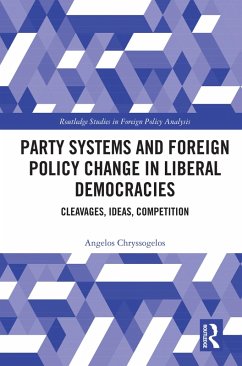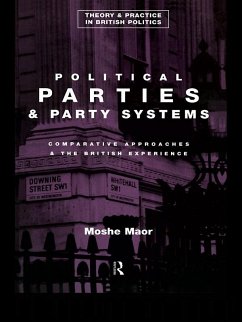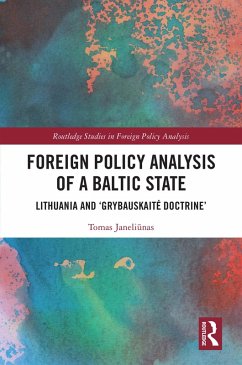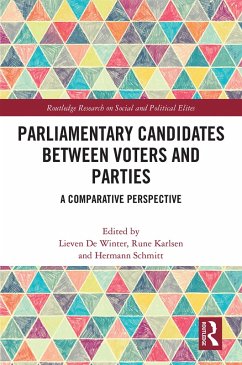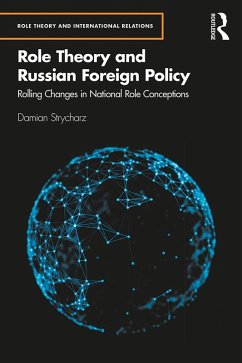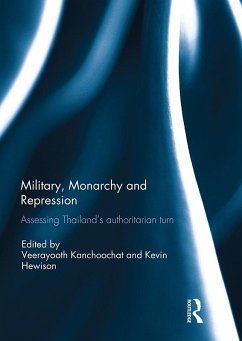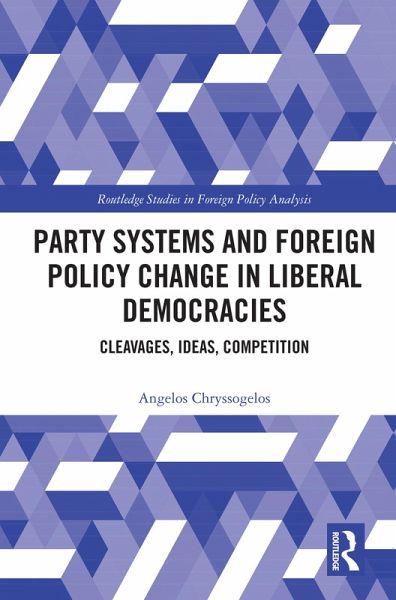
Party Systems and Foreign Policy Change in Liberal Democracies (eBook, PDF)
Cleavages, Ideas, Competition
Versandkostenfrei!
Sofort per Download lieferbar
41,95 €
inkl. MwSt.
Weitere Ausgaben:

PAYBACK Punkte
21 °P sammeln!
How do political parties affect foreign policy? This book answers this question by exploring the role of party politics as source of foreign policy change in liberal democracies.The book shifts the focus from individual political parties to party systems as the context in which parties' ideologies receive precise content and their preferences are formed. The central claim is that foreign policy change arises from within transformed discursive contexts of party competition, when a new language of politics that constitutes anew parties' self-understanding of what they stand for and compete over ...
How do political parties affect foreign policy? This book answers this question by exploring the role of party politics as source of foreign policy change in liberal democracies.
The book shifts the focus from individual political parties to party systems as the context in which parties' ideologies receive precise content and their preferences are formed. The central claim is that foreign policy change arises from within transformed discursive contexts of party competition, when a new language of politics that constitutes anew parties' self-understanding of what they stand for and compete over emerges in a party system. By comparing cases of contested foreign policy change, the book shows how such transformations in party competition determine whether and when international pressures on a state will translate into decisions to institute foreign policy change and what degree of change will be ultimately implemented.
With a novel framework which bridges concepts of international relations and comparative politics, the book will be of interest to researchers and students in the areas of international relations theory, foreign policy analysis and comparative politics, and generally to anyone wanting to understand how and when parties, elections and voters contribute to international change.
The book shifts the focus from individual political parties to party systems as the context in which parties' ideologies receive precise content and their preferences are formed. The central claim is that foreign policy change arises from within transformed discursive contexts of party competition, when a new language of politics that constitutes anew parties' self-understanding of what they stand for and compete over emerges in a party system. By comparing cases of contested foreign policy change, the book shows how such transformations in party competition determine whether and when international pressures on a state will translate into decisions to institute foreign policy change and what degree of change will be ultimately implemented.
With a novel framework which bridges concepts of international relations and comparative politics, the book will be of interest to researchers and students in the areas of international relations theory, foreign policy analysis and comparative politics, and generally to anyone wanting to understand how and when parties, elections and voters contribute to international change.
Dieser Download kann aus rechtlichen Gründen nur mit Rechnungsadresse in A, B, BG, CY, CZ, D, DK, EW, E, FIN, F, GR, HR, H, IRL, I, LT, L, LR, M, NL, PL, P, R, S, SLO, SK ausgeliefert werden.




